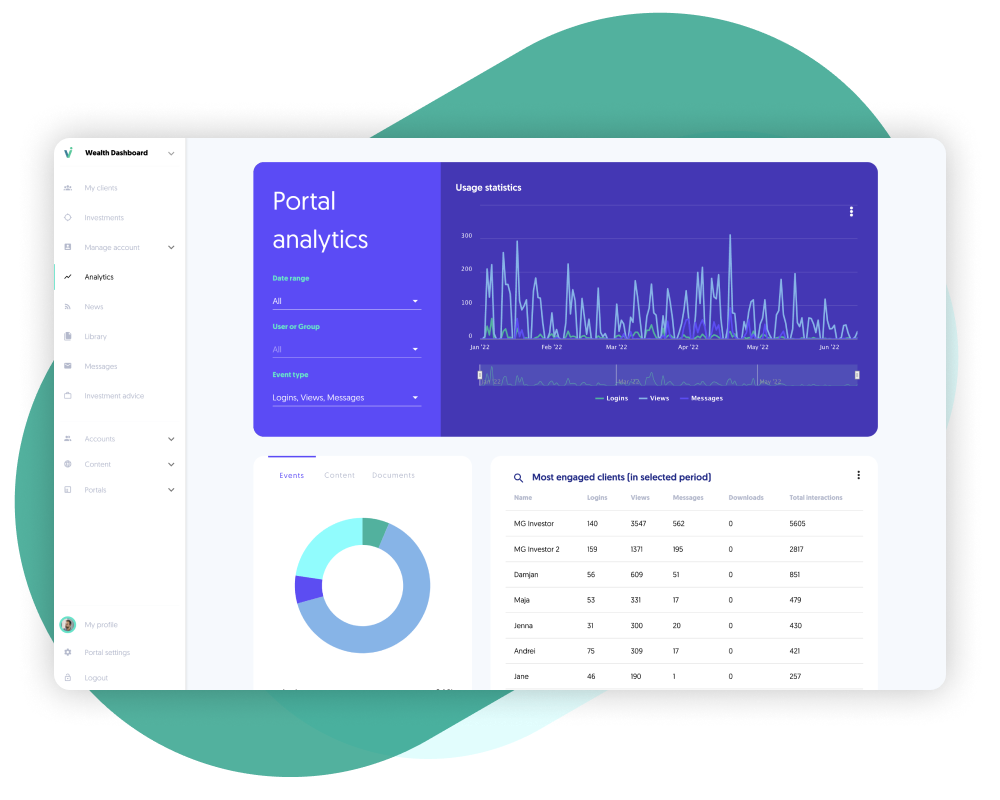Full text of the interview with Johannes Hauptmann and James Purcell, on ESG investing and reporting requirements

In order to gain insight on ESG investment reporting, I asked Johannes Hauptmann, CEO of Anevis Solutions, and James Purcell, Group Head of Sustainable Investing at Quintet Private Bank a few questions.
The Economist cited that 500 ESG funds were launched in Europe last year. What do you think are the drivers behind so many coordinated launches?
Johannes Hauptmann: The task of our and the following generations is to ensure that all activities, especially in the economic field, are converted to sustainability. It's a logical conclusion that this also has an impact on the fund industry. Currently, we assume that the 500 ESG funds are just the beginning, because we see that many existing fund managers are currently working on gradually adapting their existing products. They want to develop their existing products based on the new goals and the important role of sustainability.
James Purcell: There are two reasons for the increase in fund launches – and they are connected. The first is straightforward: Demand. As ESG topics increasingly permeate everyday life – from consumer goods, to packaging, to transport – it’s only logical that these preferences and ideals are expressed in investment portfolios as well. The second is Opportunity. For wealth and asset managers, there is a commercial opportunity in meeting such demand. A high-quality ESG offering can help grow assets, retain clients and – evidence shows – improve price realisation.
Some commentators dismiss ESG as “green-washing”. Do you agree, and what can the industry do to make ESG standards more transparent and effective?
JH: To achieve targets, we need measurability. At the moment the EU is developing a Taxonomie and regulatory handbook, which comprises different regulation regarding climate-related, environmentally and socially sustainable activities. Once this measurability is fully developed and is on a high level, it will no longer be possible to speak of green-washing. Of course, this regulation also has weaknesses, which is normal at this stage. But according to our network, which is increasingly oriented towards sustainability, current developments are very important and target-oriented.
JP: Any industry that expands rapidly will experience growing pains, whether that is e-commerce, the gig economy or ESG investing. ESG is going through a process of increased maturity where standards and regulations are increasingly being established. That said, we must approach ESG standards with a degree of caution. ESG is rarely binary: good/bad, sustainable/not sustainable. Instead, two rational, well-informed individuals can, when looking at an investment, disagree on the relative importance of various E, S or G metrics. Their personal values can also play a significant role in their opinions and conclusions.
As of now, there are “no legal requirements” for ESG reporting. How do you think fund managers should report on ESG?
JH: No legal requirements for now! As long as there are no regulatory requirements every fund manager can decide on his own how he handles this. In addition, we observe a growing pressure from the market. In my opinion, fund managers, who invest a lot of time on sustainability and do their job well, should publish their sustainability reports to the market. This is a "low hanging fruit". Additionally, it is good to know that sustainability is not only limited to ESG. Carbon footprint or SDGs should also be covered in a sustainability strategy.
JP: Legal requirements for fund manager reporting will help, but that isn’t the most logical next step. Instead, regulators should focus on ensuring there is consistency in the information available to fund managers – that companies are reporting on ESG issues to a common standard. Only when you have high-quality ESG information for fund managers to use, can you then make the most informed judgements on those managers. To that end, industry-defined standards, such as the Sustainable Accounting Standards Board (SASB), are very valuable. They are bringing rigour and discipline to ESG data, which, in time, should reach the same standard as reported financial data.


